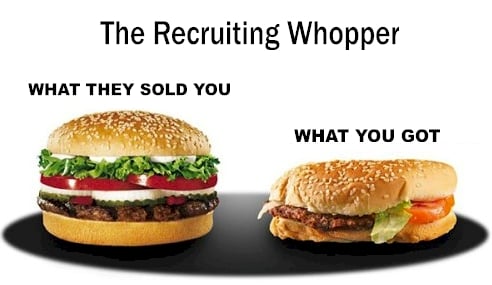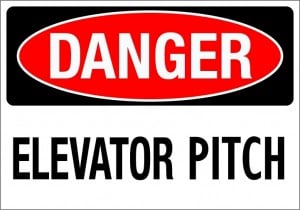In the March 5, 2013 Ask The Headhunter Newsletter, a job changer wonders if his resume is any good:
I was terminated along with dozens of other people when my company got into trouble. I’ve had to look for jobs in totally different industries because I want to stay in this city. Attached is my resume. I paid good money to have it professionally written, but it has not led to even one job interview. Do you think it’s any good?
Nick’s Reply
Talented people get downsized out of their industry, but they don’t realize that jargon prevents other employers from understanding their experience. Let’s look at some of the wording in your resume:
 “Utilize strong facilitation skills to significantly improve PVA results.”
“Utilize strong facilitation skills to significantly improve PVA results.”- “Provide research expertise to the BU/Ds and the STS/NRSO Delivery Teams for initial facility availability studies.”
- “Use a systematic process to develop globally focused training interventions and performance support tools.”
Say what?
How can you expect to be hired by an employer who can’t understand what you’re talking about because the terminology is so arcane? Fancy explanations and acronyms don’t impress anyone. Employers are impressed by simple English that explains who you are, what you’ve done, and how you might add profit to a business.
No matter how specialized your field, try to explain your work so your grandmother (or a 12-year-old child) would understand it. I mean no offense to erudite grandmothers or children, but I use this test on my own writing. If you can’t express it simply, you’re not helping the person you’re addressing, and you’re not helping yourself.
Just because you paid to have your resume written doesn’t mean it’s better than one you could write. (See The Truth About Resumes.) In fact, I strongly recommend that people write their own resumes. I know it’s not an easy task, but it’s worth the effort. It will help you crystallize your story about why employers should hire you. Unless you work with a rare resume writer who interviews you in depth, this “story development” won’t happen when you let someone else do it. Your local library has lots of books on resume writing. Study them and use only the best tips that make sense to you.
Re-write your resume and explain your experience and skills as simply as possible, so managers in other businesses and industries will be able to see how your credentials might be relevant to them.
If you would like to try something really different, consider committing Resume Blasphemy. This is one of the most popular articles on asktheheadhunter.com, in which I suggest that a really good resume actually violates every rule of resume writing. It “doesn’t show any of your past experience and it doesn’t list any jobs you ever did. No accomplishments, no achievements or awards.” Instead, “it requires you to do the job, not just apply for it.” I call this a Working Resume™.
So, what do you put in it? The article outlines four components that your Working Resume should include:
- An outline of the business of the employer you want to work for
- Proof you understand what work needs to be done
- Your brief plan for doing the work
- Your estimate of how much profit you can add to the job
That’s right: This resume is not about you. It’s about the employer and job. (That’s what’s so blasphemous.)
Can anyone tell me what makes this kind of resume such a challenge to use when you’re looking for a job? And, what makes it a huge challenge to any employer you give it to?
: :









 Those recruiters obtain lists of “candidate criteria” from their clients, and they pattern-match those criteria to someone’s resume. My guess is that among those criteria are “stable work history” or “
Those recruiters obtain lists of “candidate criteria” from their clients, and they pattern-match those criteria to someone’s resume. My guess is that among those criteria are “stable work history” or “



